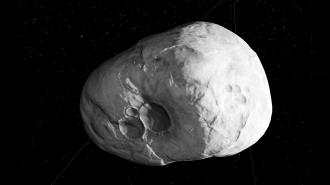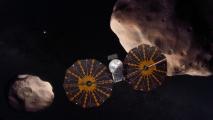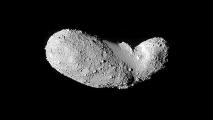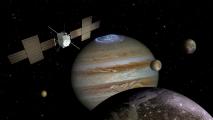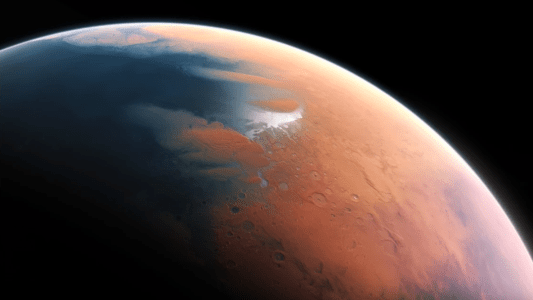NASA just shared an update on 2023 DW, the asteroid it believes has a chance to hit Earth on Valentine’s Day 2046 — and it’s great news.
Eyes on asteroids: Our solar system contains millions of asteroids, and while most will never come close to Earth, an impact from one 460 feet wide or larger could flatten a city. As we know from the dinosaurs, a really big asteroid hitting our planet could cause an extinction event.
Thankfully, unlike dinosaurs, we can spot incoming asteroids, sometimes long before they reach us, and NASA’s DART mission proved we can even change the trajectory of one if we need to — hugely reassuring news.
A really big asteroid hitting our planet could cause an extinction event
The threat: On March 7, NASA tweeted that it was tracking 2023 DW, a newly discovered asteroid about 13.7 million miles away, as it had a “very small chance” of hitting Earth on February 14, 2046.
Given its average diameter of 165 feet (about the size of an Olympic swimming pool), this asteroid probably wouldn’t destroy a city — should one be so unlucky to lie in its path — but it could cause serious destruction. When a similar-sized asteroid exploded over Siberia in 1908, it leveled more than 80 million trees.
What’s new? NASA promised to continue monitoring 2023 DW and provide updates as they were available, and within a week it had good news to share: it was reducing the odds of an impact from 1 in 560 to 1 in 770 — the asteroid now has just a 0.13% chance of hitting Earth.
“We tend to be a little more conservative, but it definitely appears to now have a downward trend in probability,” Lindley Johnson, NASA’s planetary defense officer, told AFP on March 14.
“No one needs to be worried about this guy.”
Richard Moissl
The European Space Agency (ESA) is even less concerned about 2023 DW — it has dropped its estimated odds of an impact from a recent high of 1 in 432 down to 1 in 1,584, giving the space rock just a .063% chance of reaching Earth’s surface.
“It will go down now with every observation until it reaches zero in a couple of days at the latest,” Richard Moissl, the head of ESA’s planetary defense office, told AFP. “No one needs to be worried about this guy.”
The bottom line: DART proved it is possible to redirect an asteroid with a kinetic impact, which is a more scientific way of saying “slamming something into it.”
A large asteroid would need to have greater than 1 in 100 odds of making impact before the space community would consider deploying such a mission to redirect it, though, and based on the newly announced odds, they’ll be no need for that with 2023 DW.
“Everyone should relax, ignore the sensationalist headlines and stories, and watch how this situation plays out,” said Johnson. “Nevertheless, the planetary defense community will keep looking up!”
We’d love to hear from you! If you have a comment about this article or if you have a tip for a future Freethink story, please email us at tips@freethink.com.
